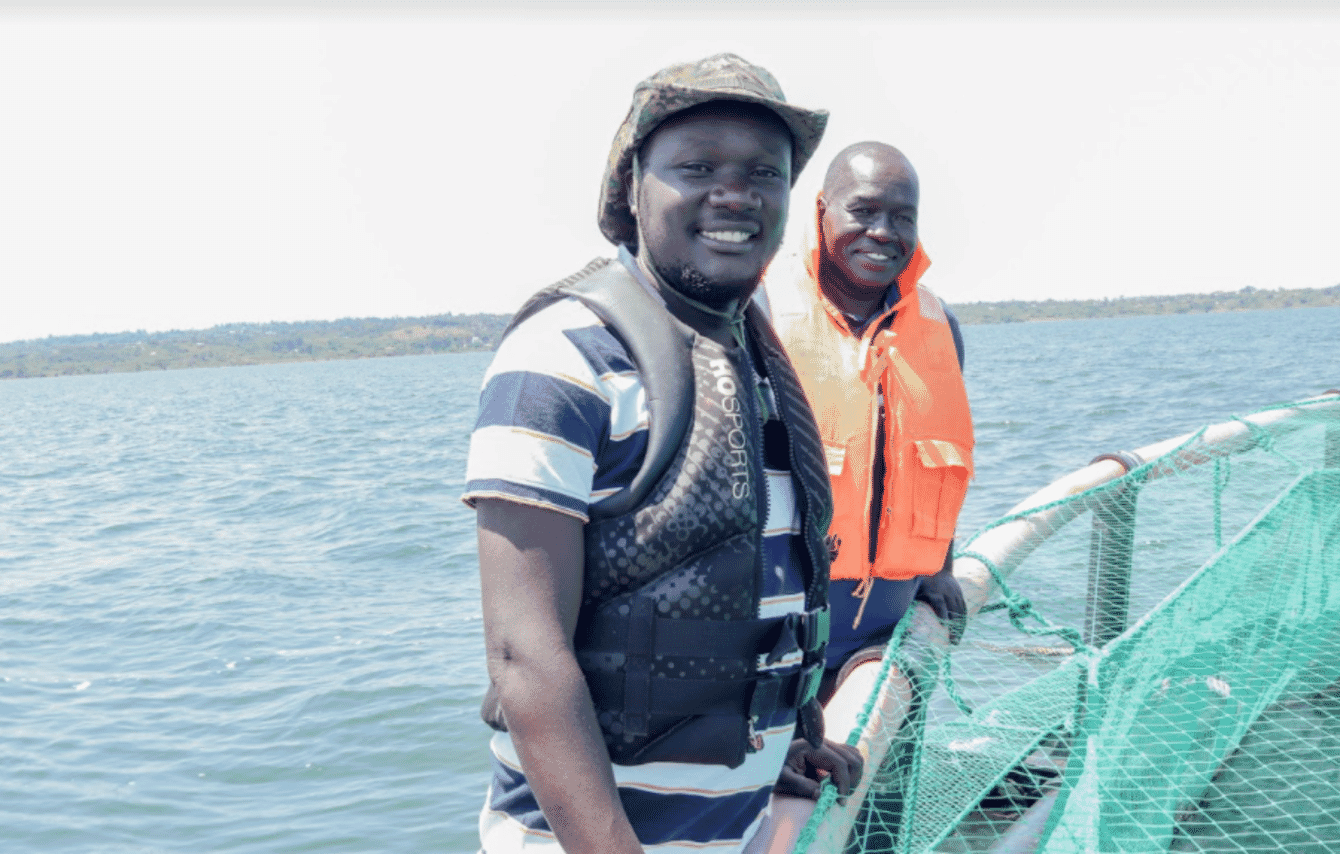
AquaRech is an agtech social enterprise focused on ensuring sustainable and inclusive growth of the aquaculture industry. And Okech was selected for the programme having recently developed a sensor, linked to an app, that is helping fish farmers reduce their grow-out cycles, source quality feed and find new routes to market – all for under $50 a year.
By linking farmers directly to a range of traders online, the platform is also helping to reduce the incidence of jaboya, also known as “sex-for-fish” - by which fishermen would sell to those traders who granted them sexual favours - which plagued the traditional fish sales process.
Since The Fish Site last spoke to Okech, his startup has come on in leaps and bounds - with over 1,500 users of the platform (up from 347 a year ago). He has also secured investment, while two of Africa's largest aquafeed providers - Mauritius-based LFL and AquaGroup Feed from Egypt - have now agreed to provide their feeds to the smallholder farmers who are using the AquaRech platform.
"We are now able to supply 100 tonnes of high quality feeds a month to smalholder farmers in Kenya. It's the first time that they've had access to such good quality feed - which is normally only available to the big fish producers," Okech reflects.
Thanks to the new partnerships, Okech notes that this volume of feeds available is likely to increase dramatically, to reach 250 tonnes per month by early 2022.
Meanwhile he is also working to establish a network of fish bulking facilities - where smallholder farmers are able to aggregate their harvests and they can be chilled and processed before being offered for sale. These will also act as hubs where the farmers can collect high quality feeds. Thanks to $80,000 in funding from the World Bank's Kenya Climate Smart initiative, he has plans to establish four such facilities - with the combined capacity for handling the harvests of 2,000 smallholders.
Obama award
The Obama Foundation Leaders Africa programme seeks to build a growing network of innovative and ethical changemakers who will drive positive change in their communities, the continent, and the world. As a result of Covid-related restrictions this year it will be a six-month, non-residential, virtual programme for 35 emerging leaders from across the continent, running from January to June 2022.
"The focus is on developing sustainable and inclusive food systems in Africa. I want to use the opportunity to empower smallholder aquaculture producers and ensure that they take the right trajectory and adapt in the face of climate change," says Okech.
"We will also be using the programme to help us in our work as advocates for laws and regulations to protect investments in smallholder farms. There is a pool of international investors who are increasingly looking to invest in the Blue Economy, but many invest only in the big companies. We need to ensure that locals can gain access to investments - not just as employees of the big companies, but also direct investment so they can set up their own farming companies and producer organisations," Okech - who is now head of the Cage Fish Farmers of Kenya - explains.
This year’s programme will focus on honing leadership skills, building deep relationships with fellow leaders, and exploring how to drive, scale, and make sustainable change. Participants will discuss a wide variety of regionally-focused and global issues with thought leaders in government, civil society, and the private sector from across Africa and the Obama Foundation’s global network. Upon graduation, this group of leaders will join a pan-African community of like-minded changemakers and will become part of a lifelong Obama Foundation community with access to a deep network of support.
The virtual Leaders Africa programme seeks to identify exceptional leaders in government, civil society, and the private sector who have a clear issue-focus and who can illustrate the impact of their work. Its objective is to build a network of leaders with integrity, who create positive, innovative change in their communities, throughout Africa, and across the globe.




